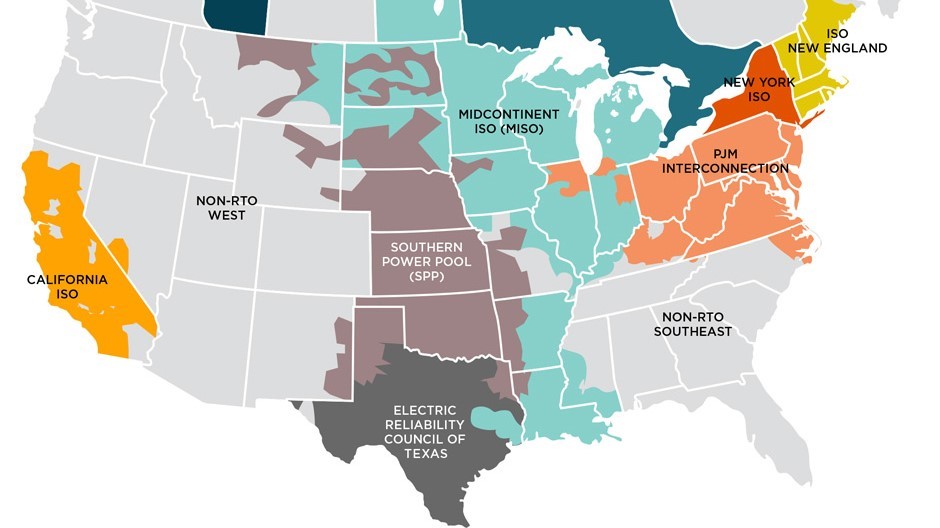Renewable energy prices have fallen so fast that it’s now cheaper to build new wind or solar than run existing coal plants in most parts of the U.S. Meanwhile, pro-climate governors have recharged state energy policy, with eight states plus Washington, D.C. now targeting 100 percent clean or renewable energy.
America’s electricity system is rapidly decarbonizing, moving away from fossil fuels toward clean energy. But while our energy mix is evolving, the wholesale electricity markets – which serve two-thirds of the country – haven’t kept pace.

These markets were developed around the 20th century model of large fossil fuel power plants producing electricity for fixed demand, and they are increasingly ill-equipped to handle this transition.
The influx of 21st century clean energy sources coming online across the grid differ in important ways from these large fossil fuel plants, which means grid operators must rethink the future of U.S. electricity markets.
A research paper series organized by Energy Innovation proposes two pathways for the system to evolve over time. One pathway focuses on improving today’s markets short term markets for energy, eliminating long term centralized markets, and relying on voluntary contracts for energy. The second envisions complementing those improved markets with a sophisticated long term market for needed resources and services.
Both pathways agree several features are important to markets:
- Competitive electricity markets are good: A larger portfolio of diverse resources improves reliability and decreases costs.
- Markets need to work with state and/or federal policies governing the electricity system, not work against them.
- Today’s long-term centralized markets should be fundamentally transformed or eliminated.
Meanwhile, several important differences exist between the pathways, driven by different views on important questions like:
- How big of a risk is political interference in markets?
- How much do we expect the “real world” to behave as theory suggests?
- What is the risk that real-world prices are too low to attract flexibility resources?
- Is keeping voluntary contracts for energy the best approach, or would having a centralized administrator for those contracts be more beneficial?
With the clean energy transition upon us, the issues raised in this new paper series are extremely important for grid managers to study and deliberately consider.
